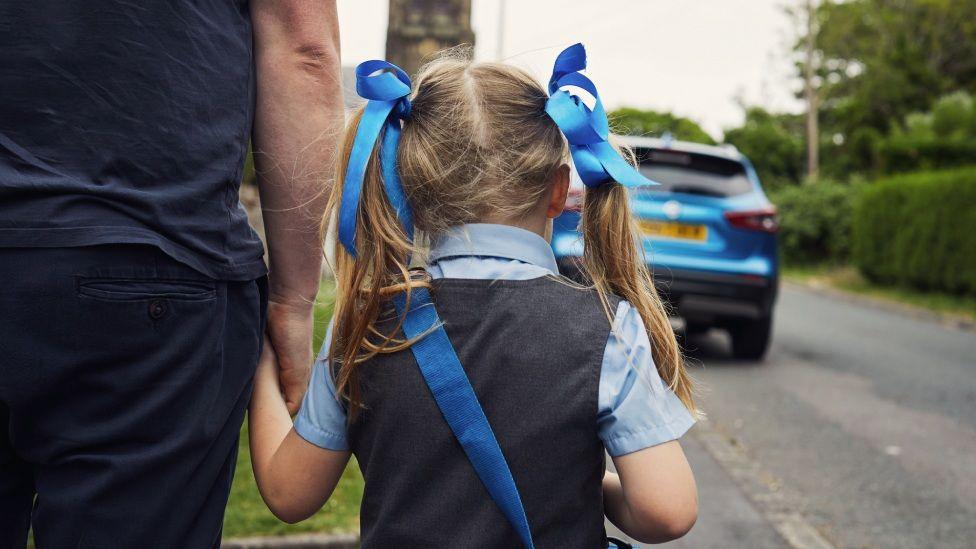'Going to school made me physically sick'

Ella said the anxiety she had around going to school made her physically sick
- Published
Children who frequently miss school in North Yorkshire are being supported back into mainstream education with the help of a charity.
Selfa, which is based in Skipton, works with secondary school pupils who are persistently absent with the aim of boosting confidence, friendships and creating a sense of belonging.
The charity said the majority of youngsters were struggling to attend school because of anxiety-related issues.
Karen Martin, from the charity, said: "Young people are going to school with such high fear of going into that environment."
Many of the children who attend the charity sessions are those who are missing classes at Skipton Academy, Upper Wharfedale and South Craven.
Pupils count as persistently absent if they miss 10% or more of their school days, which is roughly one or more days every fortnight over the school year.
Ella, 14, came to Selfa to build her confidence at school and meet other children in a similar situation.
"I was suffering with a lot of anxiety and it caused me to be physically sick before even going to school.
"There are about 2,000 students at my school so it's very nerve-wracking."
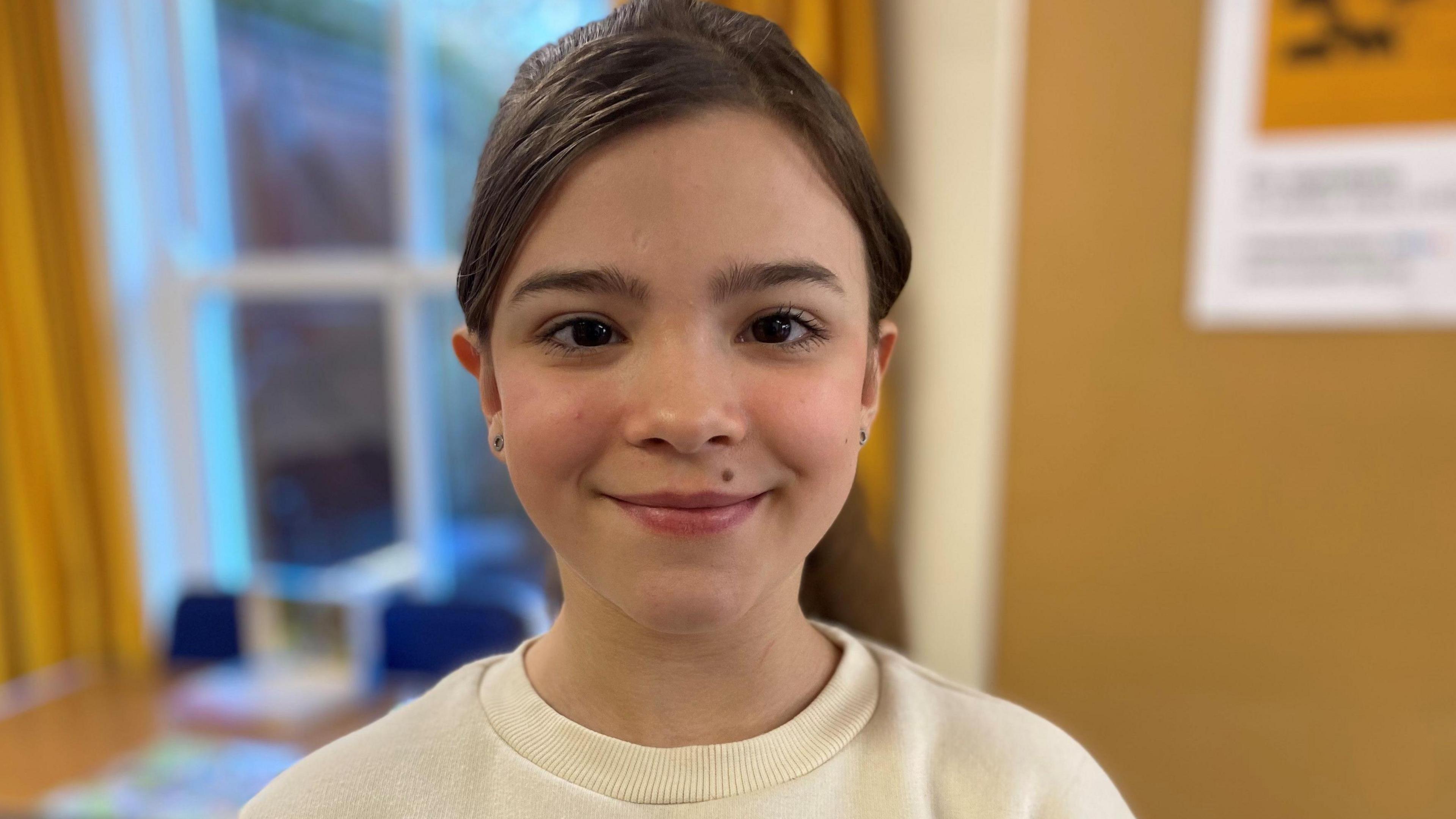
Imogen said the charity's support had helped build her confidence
The charity encourages youngsters to think about the issues keeping them away from school and factors that might draw them back.
Ella said the sessions helped her feel better about going into class and her attendance had improved.
Another pupil, 11-year-old Imogen, said she was "really struggling" with school and was "too scared to go in".
She said: "Before I came here I could barely speak to anyone but now I've found more confidence in that so I can speak to more people now.
"I feel a bit better to go to school whereas before I would take days off but now I just get up and get ready and I go."
Ms Martin, the charity's service manager, said the anxiety around attending school was for varied reasons including work pressures and friendships.
She said children face problems, "whether it's because it's such a large environment with the hustle and bustle of school life or the expectations they have on themselves".
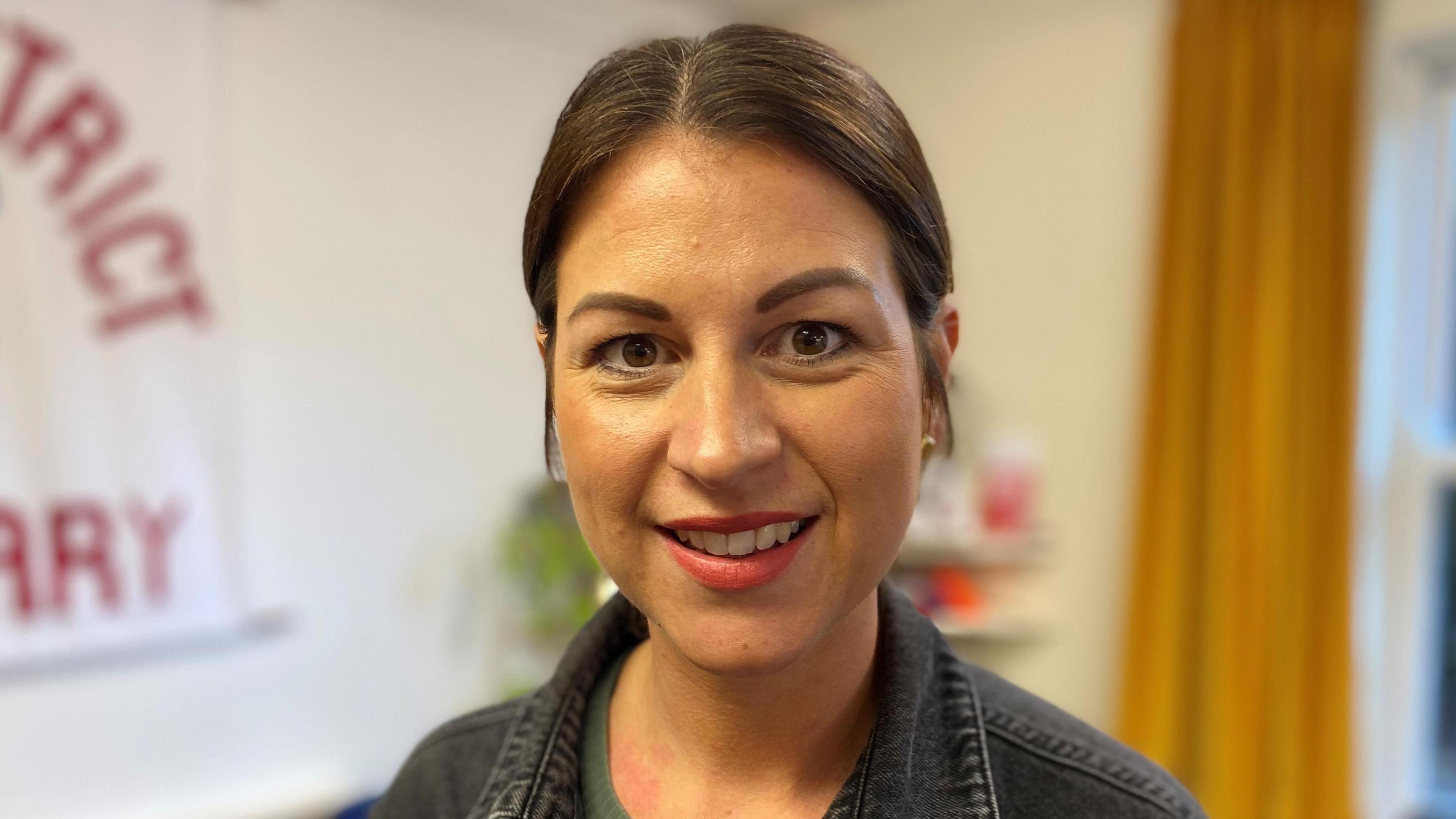
Karen Martin, from the charity, said there had been an increase in demand for help
The 10-week programme runs one day a week during school hours and the children are classed as being in education when they attend.
The morning sessions focus on classroom activities, personal goals and resilience while the afternoon sessions involve outdoor activities and trips.
The charity also supports children in instances when school is unable to match their needs.
Oliver, 12, was born with medium-chain acyl-CoA dehydrogenase deficiency (MCADD), a rare metabolic condition which affects his energy levels.
His mum Rachael said the secondary school he was offered was unable to keep him safe.
As a result, Oliver is being home schooled and attends Selfa once a week while his family seeks a suitable school place.
"For his mental health it's huge because he isn't mixing with as many children and this is a vital time for any child, missing out on those crucial years with friends when they learn so much," Rachael said.
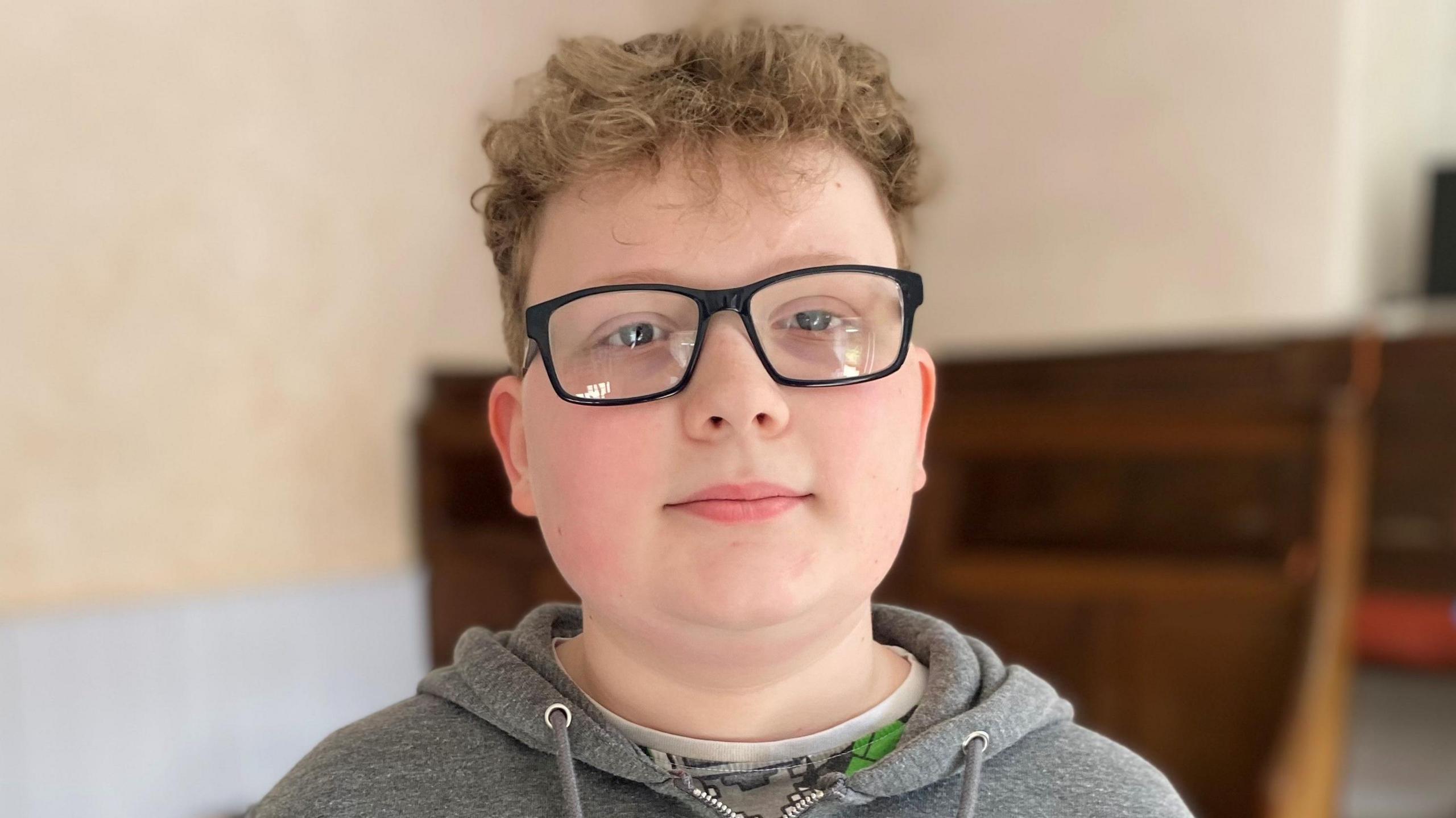
Oliver is being home schooled until his family can find a school that can match his needs
Meanwhile, the charity said the rising demand in people asking for help was likely to continue.
"We're finding we're getting more coming through the doors each time," Ms Martin said.
"I think as we go on that will increase and increase."
She added that despite the support given by the charity, it did not mean the children were always happy to regularly go back to school.
"It is very hit and miss. One day a week is not going to change that mindset for the young people.
"What we hear from the parents a lot is that they just wish Selfa was a school and I understand that."
A spokesperson for the Department for Education said tackling the issue of school absence was "everyone's responsibility".
"Government, schools, parents, and children – and we need a national effort to get our kids back in the classroom," they said.
"As part of our plan for change, we determined to turn the tide on poor attendance and break down barriers to opportunity - whether it's through attendance mentors, free breakfast clubs, improved mental health support, additional investment in family support, or more focus from Ofsted."
Get in touch
Tell us which stories we should cover in Yorkshire
Listen to highlights from West Yorkshire on BBC Sounds, catch up with the latest episode of Look North.
Related topics
Related internet stories
- Published19 November 2024
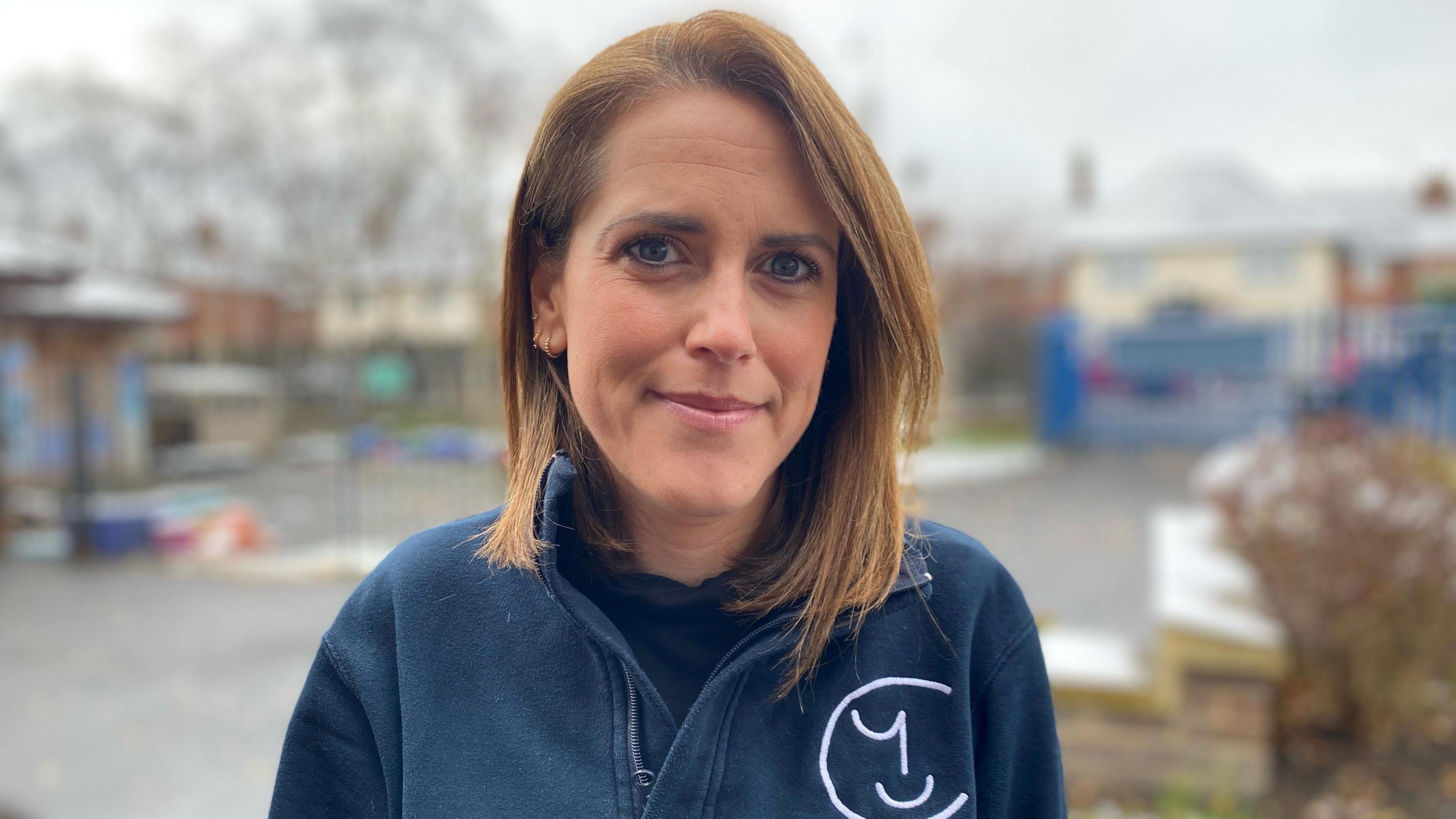
- Published1 April
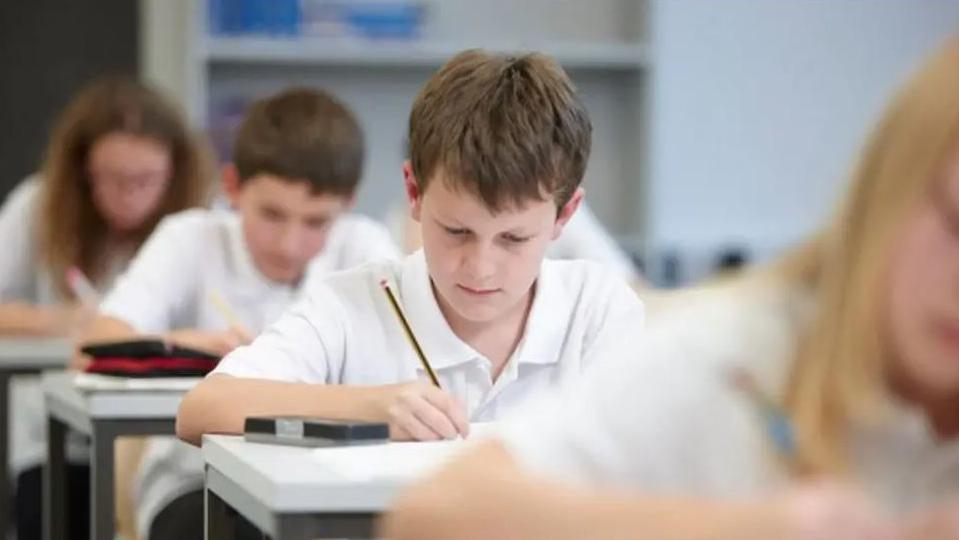
- Published17 March
